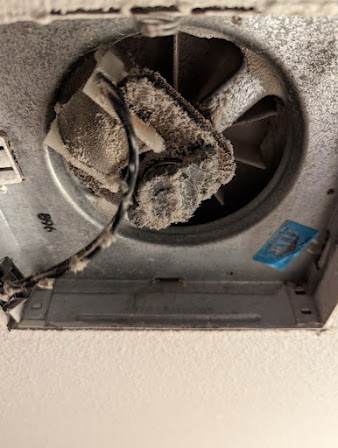Lately, I've been longing for my own home.
My dream home is a cozy, rustic cabin in the woods at the edge of a lake or river where I can drink my coffee while watching the sunrise and then launch my kayak for an early-morning paddle. (Yes, I realize this is a pie-in-the-sky dream, but if you dare to dream, why not dream big? Why not ask for what you want?) You betcha, I'm dreaming big!
 |
| My dream view |
My reality: I can't even afford this old, derelict single-wide mobile home in a senior mobile home park 20 miles north in the small town of Woodland. I considered buying it, but I didn't have the resources to make a long list of repairs. I asked myself: Is this my dream home? No.
 |
I could afford this derelict single-wide mobile in a senior park, but didn't have resources for required repairs. Is an old, single-wide mobile in a senior mobile home park my dream home? No.
|
Why I'm a renter: Bad things happen to good people
I've been a renter since December 2011 when a series of unfortunate events knocked me on my backside. In the aftermath of the Great Recession, I got divorced, got laid off from my job, had to sell my house at the bottom of the housing market, and let go of most of what I owned.
My spectacular financial plummet is told by author Heather McGhee in her nonfiction book, The Sum of Us: What Racism Costs Everyone and How We Can Prosper Together (see my story on pages 95-96). The author refers to a study that found most Americans who lost their homes during the Great Recession will never be able to buy another home. Sobering news.
After my life fell apart, I stood up, brushed the dirt off my rear, and looked around at what was left of my life. To move forward, I had to reinvent my life, my career and my priorities. That included changing how I live: simpler, cheaper, and with far less "stuff" to weigh me down.
Since then, I've lived in small homes--from a 323 square-foot RV on an isolated Eastern Oregon ranch to a one-room backyard shed a.k.a. artist's studio I dubbed Wisteria Cottage (without plumbing, toilet, kitchen, or heat) to my present 600 square-foot abode.
My cozy rented suite at the edge of the woods
I am absolutely, truly blessed to rent a cozy mother-in-law suite attached to the home of dear friends. It's been my home for almost eight years. In my entire life, I've only lived in one place longer.
 |
The center of my lovely rented home: Sweet hearth warmed \
by a gas fireplace topped with a handmade live edge mantel
|
I am living a version of my dream in a cozy home at the edge of the woods and near a creek, ponds, and trails. I'm grateful to my friends for their kindness in sharing their lovely home with me. From my windows I see rabbits, deer and raccoons. At night I'm serenaded by frogs, owls, and coyotes. It's a peaceful home and fits my need to be close to nature.
But it's a rental. Temporary. I often wonder: Will I ever own a home again?
Skyrocketing home prices and rising interest rates
The answer: A resounding NO if I stay here in Vancouver, Washington where the cost of housing has skyrocketed. The median sale price here in Vancouver is $500,000+ and in other parts of Clark County, it's more than $800,000. Affordable housing is nonexistent for those like me who earn too little to qualify for a mortage, but earn too much to qualify for home-buying assistance programs.
I've ruled out a condo with shared walls. I deal with insomnia regularly. I also don't want to have an expensive condo HOA fee over which I have no control. Space rental fees at mobile home parks range from $700 to $1,200/month. That doesn't fit my budget either.
- The good news: I have excellent credit, and I've saved some money for a down payment.
- The bad news: I haven't saved enough money to buy in the metro area, and my income doesn't qualify me to buy a home here.
Needs versus wants
I've made a list of wants versus needs. Yes, I want a home near the water where I can kayak and watch the sunrise. But the practical me listed my basic requirements for a home:
- Heat, running water, electricity, flushing toilet
- Safe neighborhood
- Home that requires little or no repair
- Not too remote; close to job, services, family and friends
- My own laundry facilities
- A larger kitchen where I can have a full-size refrigerator, cabinets and counterspace
My $225K budget = creative home search
To look for homes within my budget of $225,000, I've had to be creative. To stay in this county, I've considered:
Home #1: Floating home: One bed, one bath, 600 square feet: $170,000
The moment I stepped through the front door of this completed renovated floating home, I felt I'd found my cozy cabin at the edge of the water. However, a floating home loan is not a mortgage, but a personal consumer loan. Only one bank offers floating home loans in Clark County. I applied for a $150K loan. Despite my excellent credit, my savings account, and my job at Clark College, I was denied a loan because my income is too low. No floating home for me.
 |
My dream floating home (small home, center) view from the water
|
 |
Sunset from the back deck of the floating home!
This is my dream view, but my dreams were dashed
when I was denied a loan because my income isn't high enough. |
Home #2: 517 sq ft condo in downtown Vancouver: $260,000
 |
| Private gated courtyard condo downtown, circa 1944 |
I went to an open house for a 517 square foot one-bedroom condo in downtown Vancouver
designed by architect Day Hilburn in 1944. I loved the gated, parklike courtyard, hardwood floors, and the close-in location. I could ride my bike or walk to work, the library, coffee shops, restaurants, Officers Row, farmer's market, New Seasons grocery. But the shared walls would not work for my insomnia. And with the HOA, the payment was far above my budget.
Realizing I couldn't afford a home in Clark County, I've looked at housing in communities outside the metro area: north along I-5: Woodland, Kalama, Longview-Kelso, east to Cascade Locks, Oregon (an hour from work) and west to Scappoose and St. Helens, Oregon.
Even in those more rural towns, the homes listed at $225,000 or less are so rough and in such bad shape, that they don't qualify for a bank loan.
Home #3: Off-grid 252 square-foot cabin with outhouse on 5 acres in Toutle, Wash.: $149K
What I like about it: The cheap price and that solar panels produce the electricity.
What I don't like about it: The outhouse! Off grid. No running water and heated by a tiny woodstove. Too tiny. I've had to do without basic comforts, but would not choose to live without them daily again--unless there's a zombie apocalypse. The only bedroom is a loft accessed by a ladder. With my clumsiness and poor eyesight, what could possibly go wrong when I attempt to climb down the ladder to use the outhouse in the wee hours? Too remote, especially in the winter. It's on the road to Mount St. Helens. Too far from services, my job, family, friends.
 |
Outhouse: okay for camping, hiking; but for me, not for everyday.
I might be OK with an indoor composting toilet. |
Home #4: Yurt on 2 acres in the woods by Yale Reservoir, south of Mount St. Helens: $275K.
 |
Yurt (380 sq ft) on 2 acres in the boonies near Yale Reservoir, on south side of
Mount St. Helens; bathroom and kitchen in separate tiny building.
|
The listing makes it sound idyllic: "A perfect getaway! 380 square-foot yurt on 2 acres. Borders elk reserve and trails to Yale Lake. Detached full bath with 8 jet jucuzzi tub. Power, water, phone and picnic shelter. Includes sewer hook up for a travel trailer. Wine cellar. Beautiful piece of heaven."
The reality: The bedroom and living room are in the yurt. The bathroom and a "kitchen" (sink, countertop, and couple of cabinets) are in a tiny building that's a bit of a walk from the yurt. No laundry facilities.
 |
Bathroom and kitchen are here, a bit of a hike from the yurt.
Bonus: Flushing toilet and a bathtub with running water. |
I've already lived in a tiny artist's studio where I had to walk a distance to reach the bathroom and kitchen. This would be fun weekend property or Airbnb getaway, but not a full-time home for me.
Home #5: 123-year-old home, 1 bed, 1 bath, 742 sq ft on .68 acres in Kalama, Wash. Price: $200K
Cash only. No bank will finance it. I love older homes, but this one seems beyond rescue. It's in town and has elecricity, city water, and sewer, but calling it "rough" is an understatement. The listing says it needs a new roof, but it needs way more than a roof. How much money and work would it take to make this liveable?
 |
I love old homes, but is this one liveable?
|
Adjusting my attitude and expectations
I've searched Zillow and other online sites. My realtor has shown me the floating home and some mobile homes, but in reality, none of them were affordable or right for me. The Fed continues to raise interest rates, making my dream of home ownership move further away for me and countless others.
Here's what I have come to realize: I have a wonderful home, even if I don't own it. I am grateful to have dear friends who share their home with me for very little rent. And we sometimes share meals and deep conversations. For now, I am home.
I also know that especially since reinventing myself after my divorce, I am unconventional. After working so hard to paddle my own canoe, do I want to settle for "normal?" Not owning a home affords me freedom and many choices.
I've been learning about people building homes from straw bales and cob. I'd still need to own land, and land is expensive. But it's a possibility.
I'd like to travel. I've learned about ways to travel and have an inexpensive place to live: international homesitters, petsitters and couchsurfing, to name a few.
On Instagram I've been watching videos posted by people in the U.K. who cruise rivers and canals while they live aboard sweet narrowboats. I'll bet they can sit on their deck to watch the sunrise.
The possibilities are endless. Who knows what's just around the next bend in the river for me?







































